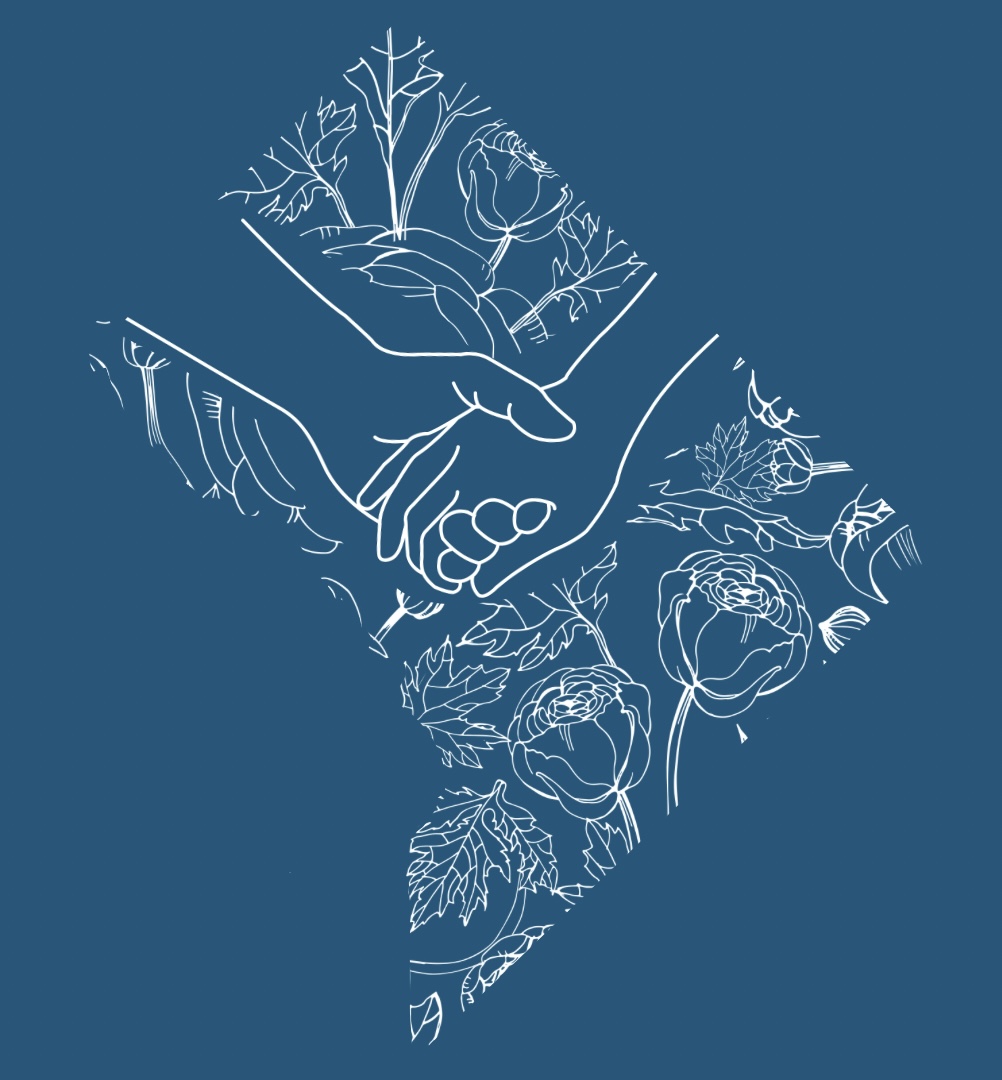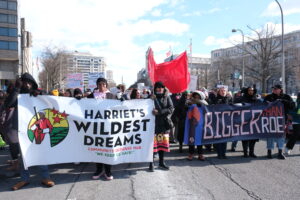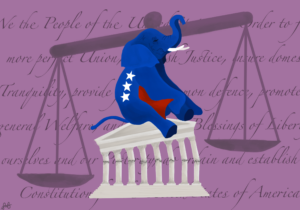For Maddy Niziolek, no day at her job is the same. One day, she may provide technical assistance, connecting clients with professionals to help fund and perform necessary operations; another day, she may hold someone’s hand and give them a shoulder to cry on. This variation is typical for an abortion doula—a profession that many don’t know about, but one that Niziolek and other doulas say is vital.
Abortion doulas are non-medical, non-mental health professionals who provide both physical and emotional support before, during, and after abortions. Their work, similar to birthing doulas who provide support during labor, can take many different forms, but centers on care and support for those experiencing an abortion.
Niziolek is an abortion doula with D.C. Doulas for Choice (DCDC), a D.C.-based doula collective founded in 2011.
“It can look a lot of different ways. It really just depends on what each abortion seeker needs and what is best for them. It really involves centering the person who’s having the abortion themselves,” said Niziolek.
After the Supreme Court’s 2022 decision in Dobbs v. Jackson Women’s Health, which repealed federal abortion protections and brought abortion policies down to the state level, abortion access is much more precarious in certain parts of the nation. Currently, 13 states have a total abortion ban, and 28 have bans based on gestational duration, which affect nearly 23 million women–one in three birthing-aged women nationwide.
Following the Dobbs decision as well as changes made by the Trump administration, D.C’s position as a so-called “abortion haven” has become more important than ever. Abortion is currently legal at all stages in D.C., making the District a hotspot for those traveling to receive necessary abortion care. Thus, the role of doulas has become a lot more important in D.C., especially for those travelling from out of state to receive reproductive care.
Doulaing means connecting and supporting others in whatever they need. Kate Hoeting, a senior advisor at Catholics for Choice and an abortion doula for almost 10 years, reflected on this feeling of support.
“Something that’s so beautiful about doulaing is the fact that it doesn’t matter at all what I think about abortions. It doesn’t matter what I would do in X situation. The only thing that matters as a doula is holding someone’s hand and being there with them,” she said. “To me, it’s such a radical act of solidarity.”
Hoeting feels a sense of pride and joy in her work.
“I have the immense honor, honestly the honor of my life, to support people through a moment where they are deciding what’s right for them in their own reproductive destinies and futures,” she said.
Niziolek says her decision to become an abortion doula stemmed from her own medical experiences and the desire to provide compassionate care to others.
“I had a lot of interactions with the reproductive health medical-industrial complex and a lot of negative interactions with OBGYNs and other providers, but also really learned how to navigate that system,” she said. “I wanted people to have the information that I didn’t have when I was growing up.”
Doulas affirmed that their work is incredibly rewarding, and the feedback they get from their clients proves so.
“Often, when people leave the clinic, they want to give you a hug. And then you know you’ve helped someone have a better experience that day and help somebody to feel a little less alone and have a little less shame or stigma,” Niziolek said.
Dr. Christina Marea, a certified nurse midwife, researcher, and nursing professor at Georgetown, emphasized that the work of abortion doulas centers on the person, which she appreciates.
“There are hard things that we go through in life, and just having someone who is there attuned to what you need who understands your priorities and the meaning of this experience for you – it’s just another beautiful manifestation of care in a broader health ecosystem that I think we should maintain and expand,” she said.
The work of abortion doulas is heavily impacted by the area in which they operate. D.C. is one of the only places in America that has no gestational limit, meaning people can legally receive an abortion at any point in their pregnancy.
“We have three all-trimester clinics, which means they provide care all throughout pregnancy. And there are only five or six in the whole country,” Alisha Dingus, the Executive Director for the D.C. Abortion Fund (DCAF), a fund that helps to cover the cost of abortion care for those living in or travelling to D.C. for abortion care, said. “I think D.C. is the best place for abortion access in the world.”
Niziolek said that D.C.’s lack of gestational limits is atypical, even among more progressive areas of the country.
“Even states that people think have really progressive abortion policies have gestational limits, and so something that we see a lot that’s different in D.C. is seeing people in the second and third trimester receiving abortion care here,” Niziolek said.
In addition to the importance of abortion access to District residents, Spector points to D.C.’s location and accessibility as factors in making it such a hub for those seeking abortions from across the country in America.
According to Spector, D.C. is widely considered a haven for abortion seekers, with the highest rate of non-residents traveling there for an abortion. With nearly 1 in 5 abortion seekers traveling out of state for abortions due to restrictions, D.C. has become more popular than ever.
“We are one of the only places where folks can go to access abortion care, especially folks from the South,” Spector said.
D.C.’s proximity to the South makes it a viable destination for abortion seekers, according to Niziolek.
“Since Dobbs, we’ve seen a lot more people travelling to D.C., especially from places like Florida, to access care because D.C. is relatively easy to access,” she said.
Despite these recent changes to abortion care in D.C., Dingus emphasized that the community in the District makes her hopeful for the future.
“We have amazing providers and clinics in the District,” she said. “That is why I think we exist as a haven, even without statehood. We have built this amazing abortion access community within the district.”
Niziolek also helped spread abortion doula work to George Washington University (GW), where she recently graduated. Notably, she assisted in the creation of GW Reproductive Autonomy and Gender Equity (GW RAGE), an organization that focuses on abortion advocacy, access, and education, while also training students at GW to become abortion doulas themselves.
“I think we realized there was a huge need, especially on campuses, just for someone to be there for emotional support, to just guide people to where they need to go,” Stephanie Spector, a GW graduate student, said.
Spector is the co-president of GW RAGE, which currently operates as a virtual collective, working with the medical faculty at GW to connect students and others in D.C. virtually with necessary care. The doulas at GW RAGE help by making care packages for those receiving abortions, providing emotional support over encrypted messaging systems like Signal, and connecting clients with the medical services at GW for an expedited process.
“We see the impact that doulas have on people. I think they appreciate that support and that help, whatever step of the way that is,” Spector said.
Niziolek agrees, emphasizing the surge in young people joining the movement.
“I think we’re also just seeing a lot more collectives, either refreshed post Dobbs or just new collectives, especially on college campuses. A lot of young people are getting really interested in abortion doula work and wanting to support other young people on their college campuses,” Niziolek said.
Despite this, D.C. also faces some challenges to abortion access. One of the main obstacles is its lack of statehood and, therefore, lack of local autonomy over reproductive rights. Because D.C. is not a state, Congress has the ability to review, modify, and even block D.C. council legislation. Congress can also attach rules to the federal budget or pass stand-alone laws that apply specifically to the District.
“D.C.’s abortion laws are pretty much in the hands of Congress. If they decide they want to restrict abortion care in D.C., they can,” Spector said.
D.C. is also under the rule of the Dornan amendment, a law that prohibits the District from using its tax dollars to cover abortions in Medicaid. This limits abortion access for low-income Washingtonians on Medicaid seeking care and places a heavy burden on abortion funds like DCAF.
Hoeting said the District’s lack of autonomy makes the work abortion doulas do even more important.
“Our work is especially important in D.C., where our rights are so, in one way, strong, but people don’t realize how precarious they are,” she said.
Spector says that adapting to problems and challenges like these is not new for abortion doulas.
“Being a doula means you have to be very adaptive,” she said. “Obviously our main goal is always to be there for patients and be that first line of support. And I don’t think that’s ever going to change. But I do think, should our laws change, or the legality of things change, we will have to adapt and change the type of resources we’re giving people and the kind of support that we’re ready to give people.”
Despite an increase in abortion-seeking visitors to D.C., funding for abortion care has also not been as steady. DCAF has had to implement a budget of a little under $40,000 a week. This means they are only able to serve about 70-80 people receiving abortion care weekly, with costs ranging from $580-$2,000 depending on the stage of pregnancy and level of necessary care.
“The donations started to slow, and it became harder and harder to meet the demand in this region,” Dingus said. “DCAF could spend a million dollars on abortion care every month because that’s the level of demand we see in our region, but we just don’t have that kind of money.”
Increased demand for abortion in D.C. since the Dobbs decision has also placed pressure on local abortion funds to support both Washingtonians and those traveling from out of state.
“It’s become much harder for your local abortion fund in a haven place to show up for everyone traveling here,” Dingus said.
Dr. Marea also pointed to how decisions about abortion made in D.C. are affecting those across the globe. President Donald Trump recently reinstated the global gag rule, which restricts foreign assistance to organizations providing abortions overseas, and has enforced the end of federal funding for abortions.
Trump has also taken significant actions to dismantle the United States Agency for International Development (USAID), which has affected reproductive rights and care.
“USAID and Global Health were incredible supporters of sexual and reproductive rights globally,” she said. “It’s devastating on a global scale how we’ve all of a sudden withdrawn that support.”
Marea says this lack of support has been felt on the individual level for healthcare providers.
“There is this palpable anxiety and despair in healthcare right now, watching our administration dismantle our public health and infrastructure,” she said. “There is a casual cruelty to the dismantling of systems of care.”
Doulas, specifically, are feeling the impacts of these shifts and are adapting as they need to. In a time as uncertain as this, doulas are finding power in numbers and establishing collectives to serve more individuals.
Spector says that as the needs of people across the District grow, doulas are considering how they can support reproductive health outside of abortions.
“I think there’s also definitely room for growth within our collective,” Spector said. “We’re also looking to maybe expand the capacity of our doulas to help with things like insurance, maybe even helping with birth control services.”
Looking to the future, doulas want to continue building these strong communities of reproductive support to ensure the District is best equipped for incoming challenges.
“It’s about building these community networks now to make sure that they’re really strong and ingrained in our community,” Spector said.
Dingus also warned people to keep an eye on local policies.
“A lot of the anti-abortion work is happening at the local level or happening through lawsuits. Things that I think are quieter and that people aren’t paying as much attention to,” Dingus said.
Similarly, Marea emphasized that activism through local and state policy is increasingly important.
“Right now, when we have so little control and this massive undermining of democratic norms at the national level, a lot of state governments are still functioning. Local and state policy is where acting towards liberation needs to be focused right now,” Marea said.
Despite mounting challenges, Marea also encourages people to keep a positive outlook on the future.
“I think having a practice of hope is important. And that means joy and fun and not letting any of the despair take away from a practice of caring for your community,” she said. “I think there are small things we can do in sharing that message.”
Abortion doulas are taking steps to combat fear and anxiety in a time when they run rampant. Despite threats to abortion access and safe care, they maintain hope that D.C. will continue to stay a haven, and doulas agents of change.
“We are a very progressive, resilient city,” Dingus said. “The city is going to need to show up in big ways.”






